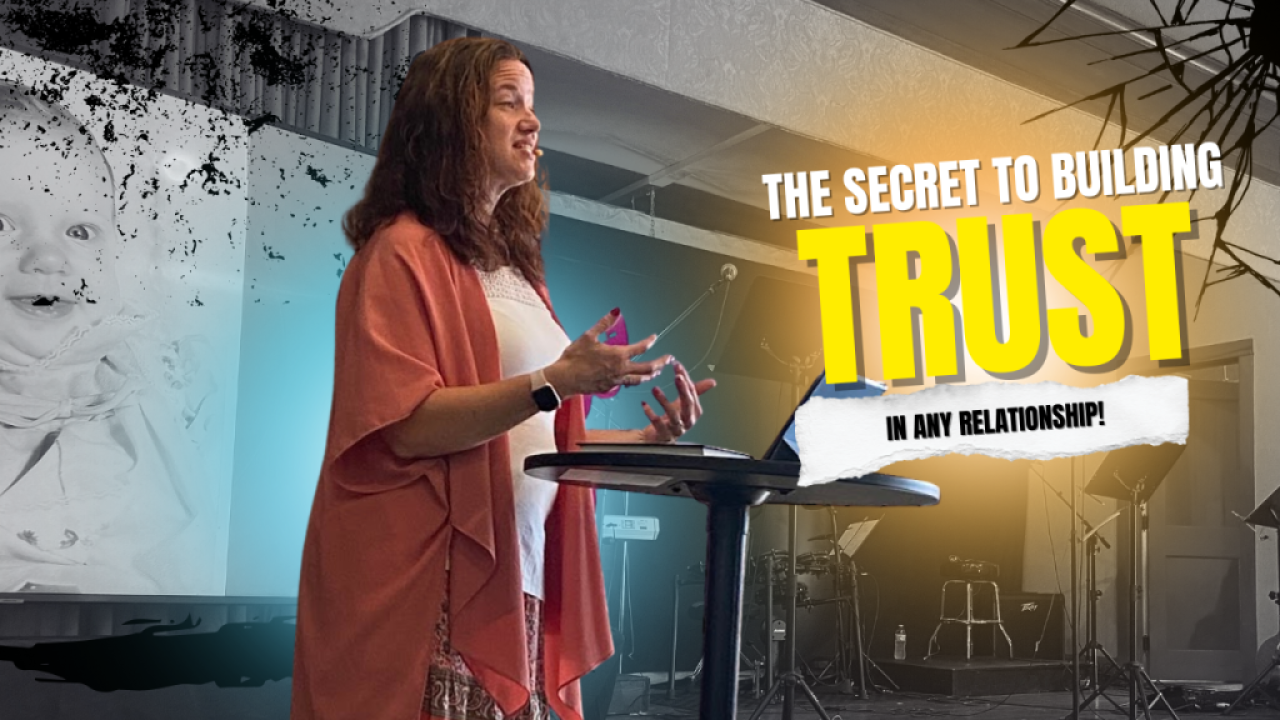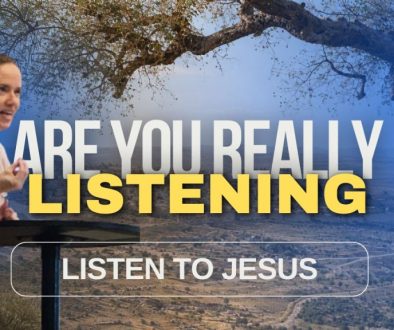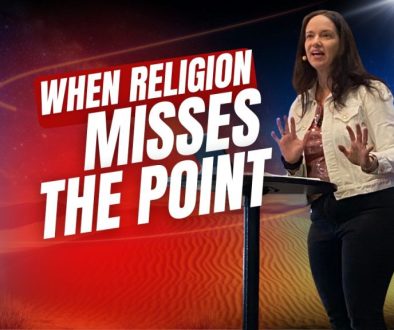How to Build Trust in Relationships: The Comfort Circle Explained
Why Do So Many Relationships Struggle With Trust?
If you’ve ever wondered “Why do I have trouble trusting others?” or “Why do my relationships feel stuck?” — you’re not alone. Studies show that 75% of adults do not remember receiving comfort as children during times of distress. That lack of comfort often leads to insecure attachment styles, making it harder to build healthy relationships as adults.
At Open Arms Community Church in Bradford, PA, Pastor Zoe Hatcher shared how God’s love offers a different way forward through a simple but powerful tool called the Comfort Circle.
What Is the Comfort Circle?
The Comfort Circle is a process that helps us build trust in our relationships by learning how to:
- Seek Awareness – Identify what we’re really feeling.
- Engage – Share those feelings honestly and vulnerably.
- Explore – Listen with empathy, reflect, and validate the other person’s experience.
- Resolve – Meet one another’s needs through forgiveness, compromise, and action.
This process doesn’t just apply to marriage. It can transform our parenting, our friendships, and even how we interact with coworkers.
Step 1: How Do I Become More Aware of My Feelings?
It starts with self-awareness. Many of us only describe emotions as “good” or “bad,” but God designed us with a wide spectrum of feelings. Tools like a feelings wheel can help us identify emotions such as gratitude, insecurity, irritation, peace, loneliness, or joy.
The Bible encourages this kind of reflection:
“Search me, God, and know my heart; test me and know my anxious thoughts.” — Psalm 139:23
When we invite God into our emotions, He helps us sort through them with clarity and grace.
Step 2: How Do I Share My Feelings Without Starting a Fight?
The next step is courage. Vulnerability is risky, but it’s how trust is built. Instead of blaming statements, use “I” statements to communicate your experience.
Example:
❌ “You never listen to me.”
✅ “I felt ignored and sad when you didn’t respond after I shared my heart.”
As Ephesians 4:25 reminds us:
“Each of you must put off falsehood and speak truthfully to your neighbor…”
Step 3: How Do I Listen When I Don’t Agree?
Listening doesn’t mean staying silent while you prepare your defense. It means truly entering into the other person’s experience.
- Use reflective statements like: “It sounds like you felt hurt and afraid. I’d feel that way too.”
- Ask clarifying questions.
- Resist the urge to interrupt, defend, or correct.
James 1:19 gives this timeless wisdom:
“Everyone should be quick to listen, slow to speak and slow to become angry.”
Step 4: How Do We Resolve Conflict and Restore Trust?
Resolution happens when the listener asks: “What do you need?”
The speaker should make one specific, reasonable request. For example:
“I need you to wash the dishes on nights when I have late meetings, because I feel unappreciated when I come home to a full sink.”
Meeting each other’s needs, apologizing when necessary, and following through builds trust over time. Galatians 6:2 reminds us:
“Carry each other’s burdens, and in this way you will fulfill the law of Christ.”
What Happens When We Complete the Comfort Circle?
- Anxiety lowers — the relationship feels safer.
- Closeness increases — bonds grow deeper.
- Trust is built — love flows more freely.
As 2 Corinthians 1:3–4 says:
“God comforts us in all our troubles, so that we can comfort those in any trouble with the comfort we ourselves receive from God.”
Can Broken Attachment Styles Really Be Healed?
Yes. While we can’t change the past, we can choose to live differently today. God invites us into a new way of loving:
“Clothe yourselves with compassion, kindness, humility, gentleness and patience… And over all these virtues put on love, which binds them all together in perfect unity.” — Colossians 3:12–14
Through the Comfort Circle, our avoidant, controlling, or anxious patterns can be healed. We move closer to secure attachment — the way God designed love to work.
What Does God’s Love Teach Us About Relationships?
The Comfort Circle is not just a psychological tool; it reflects the very heart of God. Jesus prayed in John 17 for us to experience the same intimacy He shares with the Father:
“…that all of them may be one, Father, just as you are in me and I am in you.” — John 17:21
That means our marriages, friendships, and families can become a reflection of the unity of the Trinity itself.
Final Thought: Choosing to Love Like Jesus
Every day, we have the choice to either repeat cycles of distrust and fear, or to lean into God’s perfect love. By seeking awareness, engaging vulnerably, listening with empathy, and resolving with action, we can reflect His love in our closest relationships.
At Open Arms Community Church in Bradford, PA, our purpose is simple: Loving God. Loving People. And learning to love well is where it all begins.
👉 Want to explore this further? Join us Sunday mornings at 71 Congress Street in Bradford, PA. Plan your visit here: https://openarmscommunitychurch.org/visit




